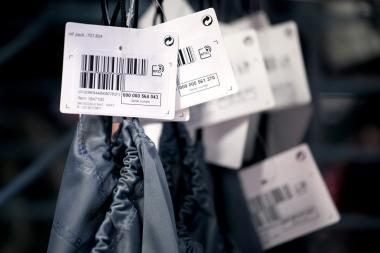Checkpoint Systems: Research Report „Utilising RFID in Retailing: Insights on Innovation“
A research report released today has revealed the innovative new ways retailers are using RFID technology in-store to improve profitability. Authored by Emeritus Professor Adrian Beck from the University of Leicester and the ECR Retail Loss Group and supported by Checkpoint Systems, Utilising RFID in Retailing: Insights on Innovationhighlights how companies are employing the technology for a broader range of purposes. It demonstrates the value the technology is bringing to their businesses and ultimately, the impact it is delivering to their bottom line. Crucially, it also shows thatmore retailers than ever are recognizing the benefits of RFID and driving uptake within their organisations. The report claims that as businesses are becoming more established in their use of RFID-generated data, they are gradually incorporating more usecases into their business-as-usual practices.
The report claims that as businesses are becoming more established in their use of RFID-generated data, they are gradually incorporating more usecases into their business-as-usual practices.
In particular, more and more retailers reported using RFID to streamline the audit process (as an alternative to infrequent organisational stock takes), which not only delivers considerable cost savings, but also provides more regular insights into the status of inventories. It also found that using RFID was having a significant impact on store processes. While RFID has always been key to inventory accuracy, some companies are now using this data to further improve business activities such as reducing phantom out of stocks, improving rapid stock search and find tasks and developing an efficient ship from store (SFS) capability.
Beyond the more traditional retail model, RFID was seen as a key facilitator in delivering omnichannel retailing by all those questioned. Without the inventory accuracy offered by RFID, few retailers believed they could reliably use their stores as fulfilment centres to output online orders. Indeed, one retailer admitted to only making RFID-enabled store stock available for this purpose. The use of RFID to improve online order accuracy is also becoming more commonplace, to reduce errors in the picking and packing process, therefore improving customer satisfaction. One retailer reported a 90% reduction in incorrect orders and customer complaints since introducing RFID into the process.
Looking to the future, one area where the benefits of RFID are starting to be tested is self-checkouts (SCO). While currently limited due to the need to have a 100% SKU tagging strategy in place, retailers are starting to recognize the benefits the technology could offer including increased speed of checkout, reduced likelihood of double scanning and thereby improved customer service. Another area where retailers also reported reaping the benefits of RFID was loss prevention. While none of those interviewed argued that reducing loss was the primary reason for investing in RFID, many acknowledged they were benefiting from it by using the technology to tackle refund frauds, enable dynamic loss product profiling, manage e-frauds and identify stolen products.
Checkpoint Systems GmbH / Carta GmbH










